-
 WhatsApp: +86 19941574798
WhatsApp: +86 19941574798
-
 sale06@kfqizhongji.com
sale06@kfqizhongji.com
Advantages of Anti-Skid Polyurethane Wheels in the Food Industry
The anti-slip polyurethane wheels are made of high-quality VULKOLLAN material. They are widely used in the food processing industry due to their anti-slip properties, resilience, non-marking capabilities, high load capacity, and resistance to chemicals.
The anti-slip polyurethane wheels are made of high-quality VULKOLLAN material. They are widely used in the food processing industry due to their anti-slip properties, resilience, non-marking capabilities, high load capacity, and resistance to chemicals and grease.
In the highly regulated and safety-conscious food industry, the choice of wheel material for transport and handling equipment plays a crucial role. Among various options, anti-skid polyurethane wheels have emerged as a preferred solution due to their excellent grip, hygiene standards, and durability. This article explores why polyurethane wheels offer superior anti-skid performance and the advantages they bring to the food processing and packaging sector.
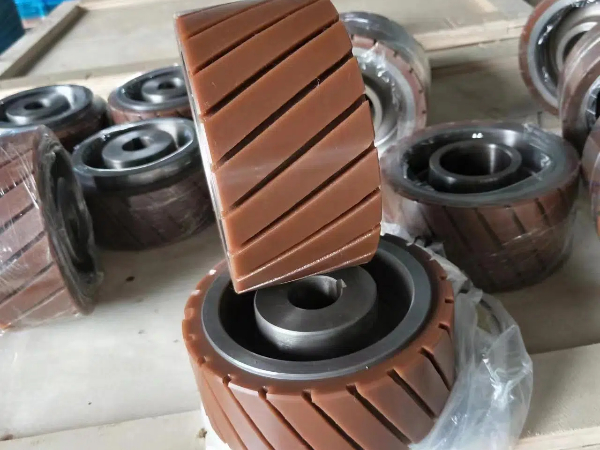
Why are polyurethane wheels anti-skid?
• A certain coefficient of friction
Polyurethane has a natural coefficient of friction compared to materials such as hard rubber or nylon. This means that polyurethane wheels can maintain a firm grip on a variety of surfaces, including smooth tiles, wet floors, or stainless steel platforms, minimizing the risk of slipping.
• Customizable surface textures
The tread of polyurethane wheels can be designed with grooves, patterns, or textured finishes that further improve traction. These designs help channel away moisture or residues, enhancing grip even in damp or oily environments.
• Elasticity and deformation recovery
Polyurethane can compress slightly under load and then return to its original shape, creating a cushioning effect that helps maintain contact with uneven surfaces. This elastic property contributes to both shock absorption and anti-skid functionality.
Advantages of polyurethane wheels in the food industry
• Excellent chemical and moisture resistance
Polyurethane is resistant to oils, cleaning chemicals, and water—all commonly encountered in food processing environments. This makes the wheels durable and reduces degradation over time, even under frequent washdowns.
• Non-marking and hygienic
Polyurethane wheels do not leave marks on clean factory floors, helping maintain strict hygiene standards. Additionally, their smooth surface is easy to clean and resists the buildup of food particles or bacteria.
• Quiet operation
Compared to metal or hard plastic wheels, polyurethane wheels significantly reduce noise during movement. This is particularly beneficial in food factories where noise control improves the working environment.
• Load capacity and floor protection
Despite being soft enough to protect floors and resist slipping, polyurethane wheels can bear heavy loads without deformation. This balance makes them ideal for carts, racks, and conveyors in food production lines.
• Temperature tolerance
Polyurethane wheels can withstand a wide range of temperatures, making them suitable for both cold storage rooms and hot processing areas.
Common applications in the food industry
• Ingredient carts and trolleys
• Packaging and sorting equipment
• Cold storage transport systems
• Meat, dairy, and bakery processing lines
• Mobile cleaning and sanitation units
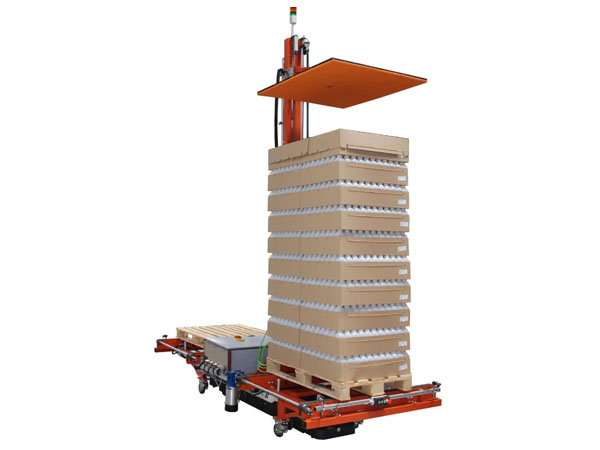
Anti-skid polyurethane wheels provide a safe, durable, and hygienic solution for the food industry’s demanding operational needs. Their combination of high traction, chemical resistance, and silent performance not only ensures workplace safety but also supports compliance with strict food-grade standards.
Categories
Recent Cases
Recent Products
Recent Blogs
- How Do Polyurethane Wheels Compare To Metal Wheels
- Why Choose Injected Polyurethane (TPU) Wheels for Your Equipment
- Why Roller Coasters Use NDI Polyurethane Wheels
- How to Choose a Poly Wheels Manufacturer That Won't Fail
- Why Polyurethane is the Choice for Pallet Jack and Forklift Wheels
- Pallet Stacker Drive & Idler Wheels for Automated Warehouses
- Mold-on Polyurethane Wheels
- Analysis of the Causes of Cleanroom Stacker Polyurethane Wheel
- Why Are NDI Drive Rollers the Premier Choice for Pallets
- Polyurethane Wheels in Mining

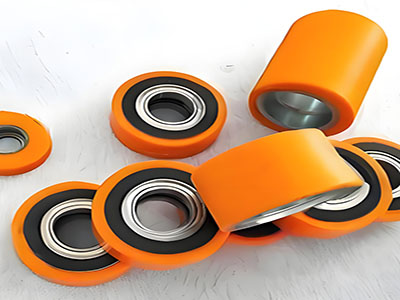
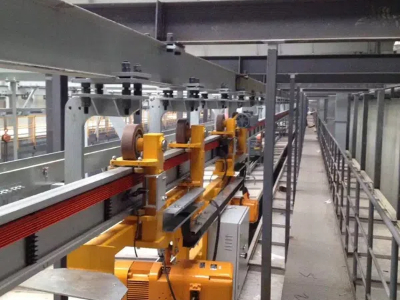
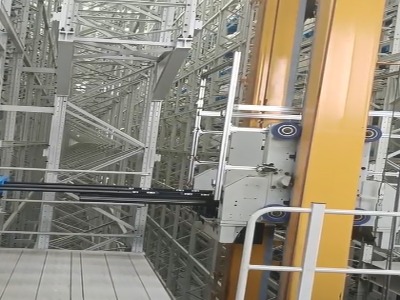
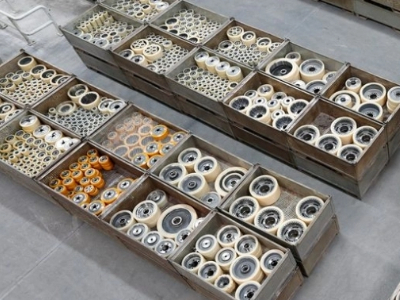
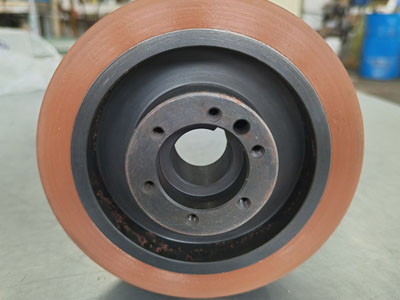
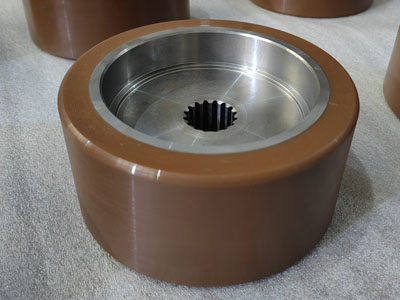
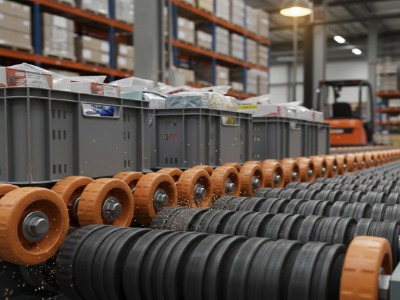
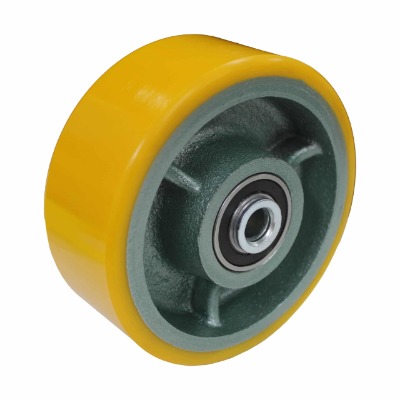
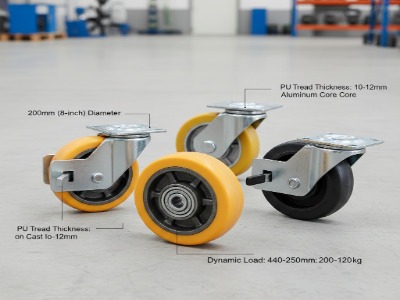
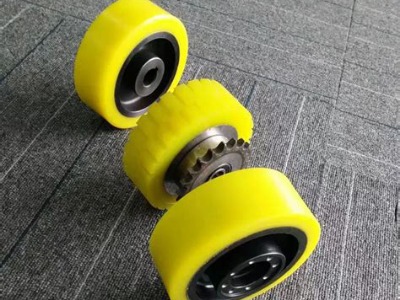
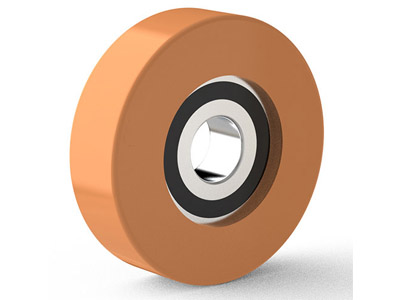
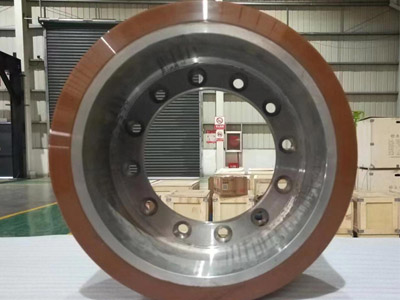
Polyurethane Drive Wheel Casting Process Analysis
Why Polyurethane is the Choice for Pallet Jack and Forklift Wheels